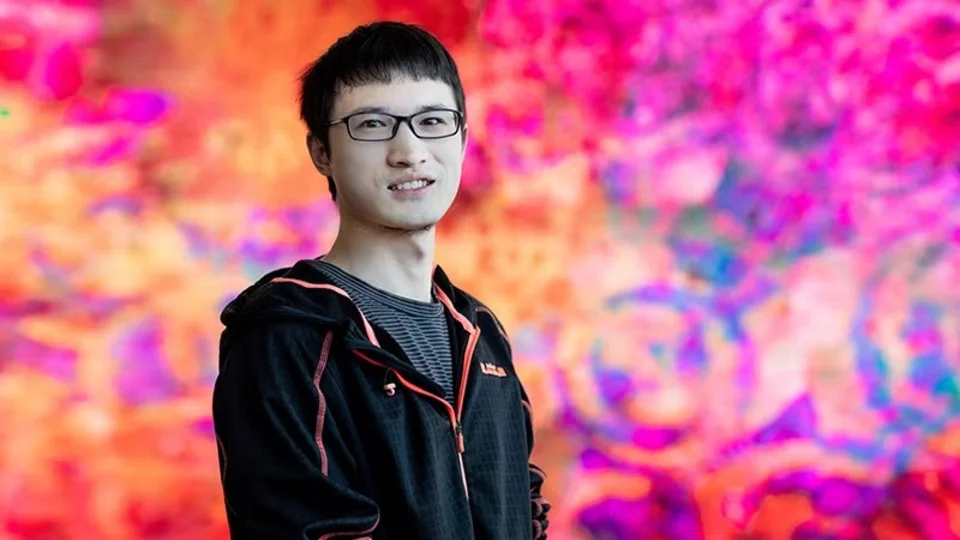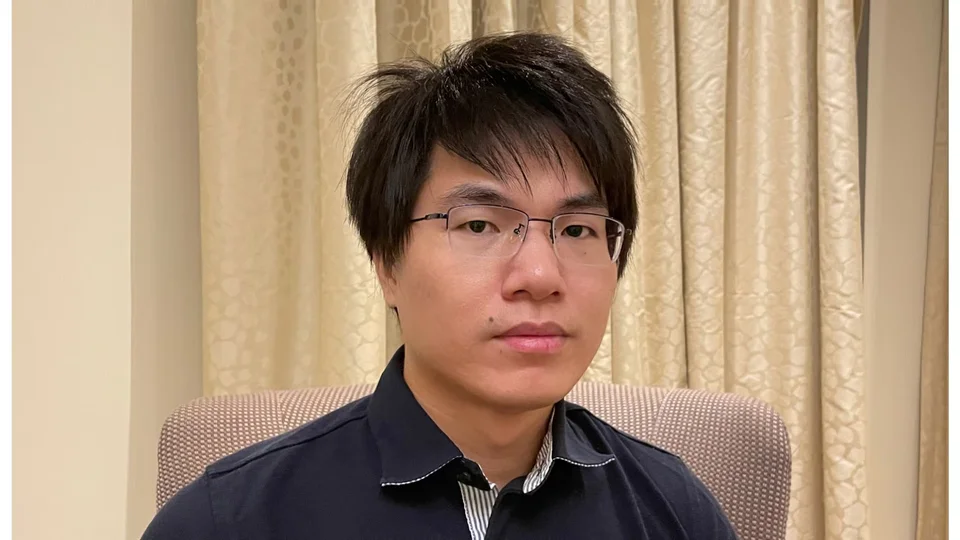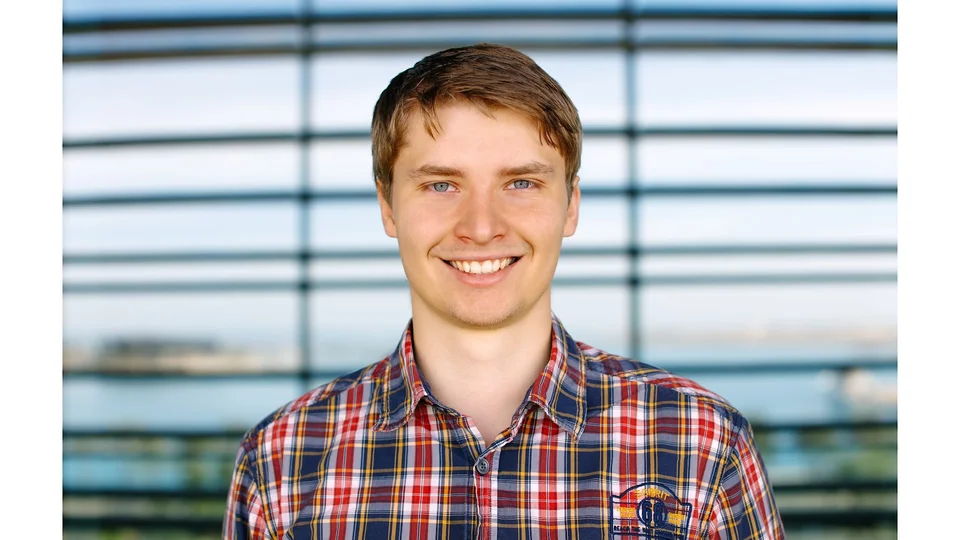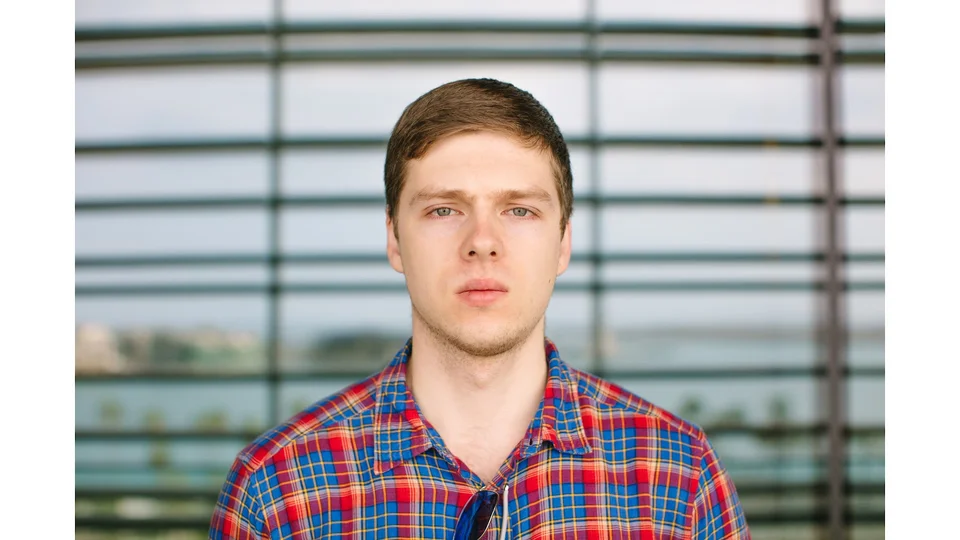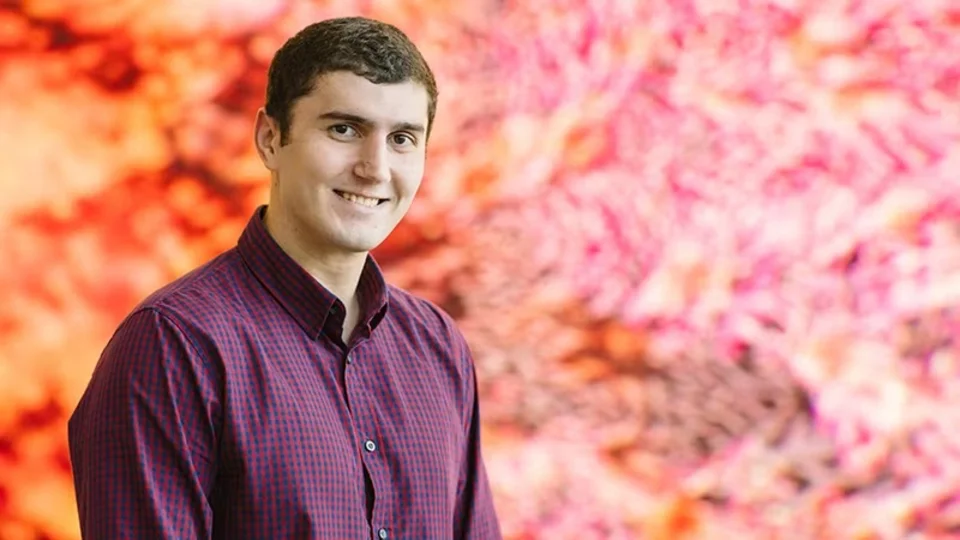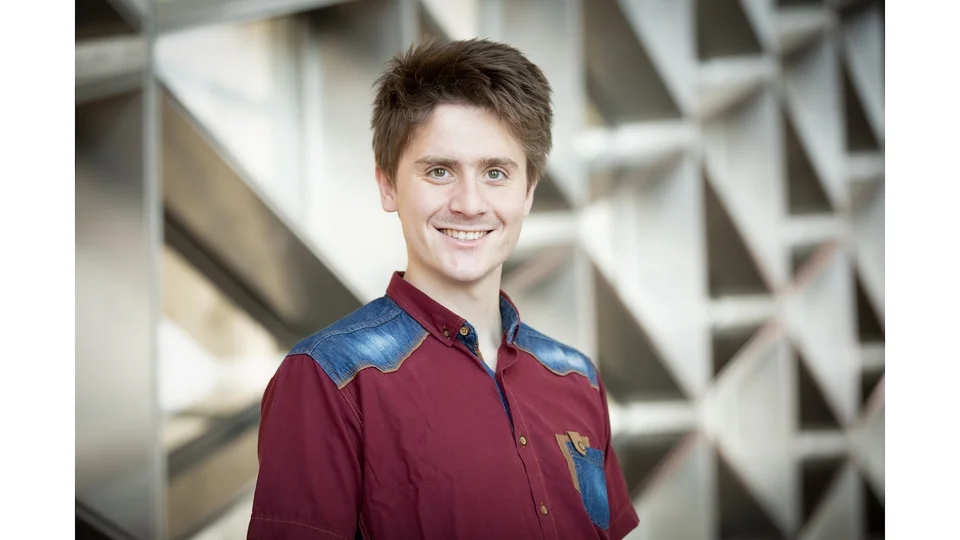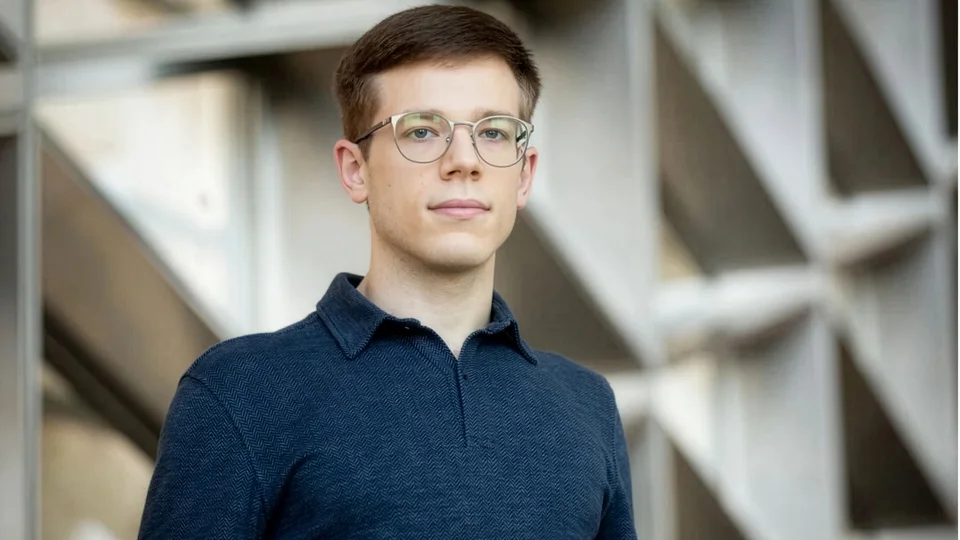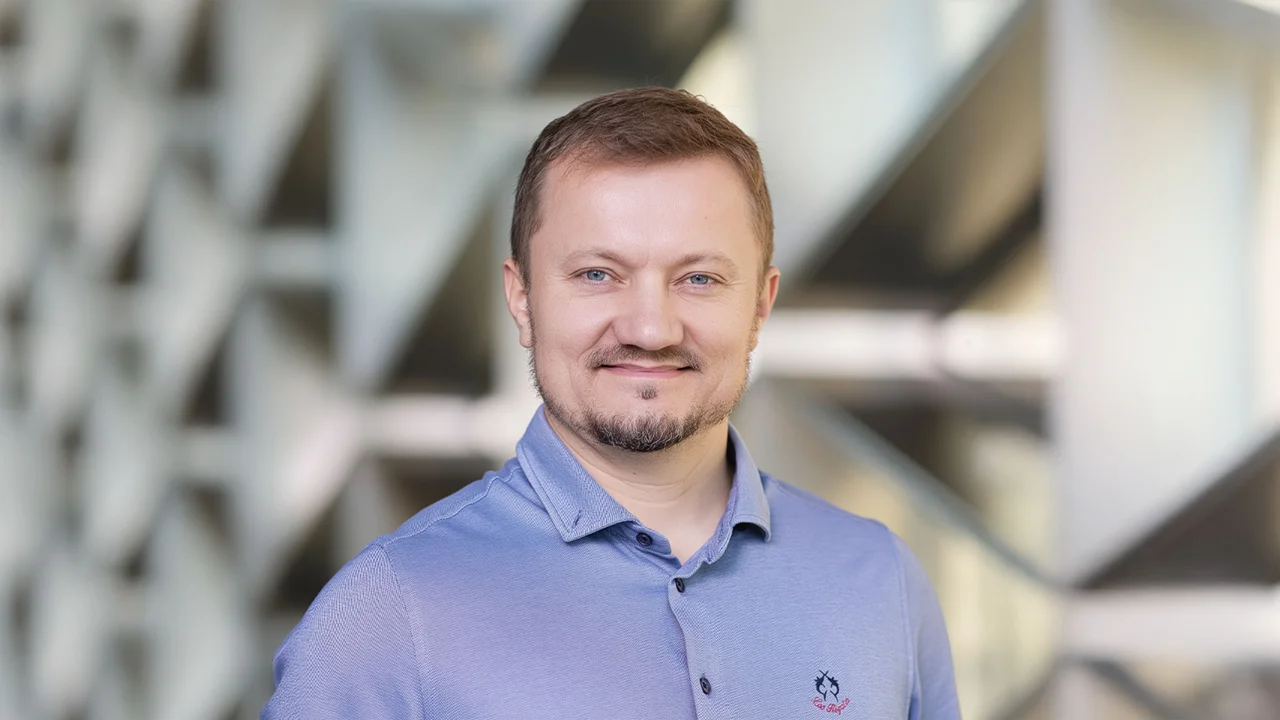
Peter Richtarik
- Professor, Computer Science
- Principal Investigator, Optimization and Machine Learning
Professor Richtárik specializes in big data optimization and machine learning. He is known for his work on randomized coordinate descent algorithms, stochastic gradient descent and federated learning.
Biography
Before joining KAUST in 2017, he was an Associate Professor of Mathematics at the University of Edinburgh, and held postdoctoral and visiting positions at Université Catholique de Louvain, Belgium, and University of California, Berkeley, USA, respectively. Richtárik obtained a Mgr. in Mathematics ('01) at Comenius University in his native Slovakia. In 2007, he received his Ph.D. in Operations Research from Cornell University, U.S. Dr. Richtarik is a founding member and a Fellow of the Alan Turing Institute (UK National Institute for Data Science and Artificial Intelligence), and an EPSRC Fellow in Mathematical Sciences.
A number of honors and awards have been conferred on Dr. Richtárik, including:
- the Best Paper Award at the NeurIPS 2020 Workshop on Scalability, Privacy, and Security in Federated Learning (joint with S. Horvath);
- the Charles Broyden Prize, a Distinguished Speaker Award at the 2019 International Conference on Continuous Optimization, the SIAM SIGEST Best Paper Award (joint with O. Fercoq);
- the IMA Leslie Fox Prize (second prize, three times, awarded to two of his students and a postdoc);
- the SIAM SIGEST Best Paper Award (joint award with Professor Olivier Fercoq);
- the IMA Leslie Fox Prize (Second prize: M. Takáč 2013, O. Fercoq 2015 and R. M. Gower 2017);
- the INFORMS Computing Society Best Student Paper Award (sole runner-up: M. Takáč);
- the EUSA Award for Best Research or Dissertation Supervisor (Second Prize), 2016;
- and the Turing Fellow Award from the Alan Turing Institute, 2016.
Before joining KAUST, he was nominated for the Chancellor’s Rising Star Award from the University of Edinburgh in 2014, the Microsoft Research Faculty Fellowship in 2013, and the Innovative Teaching Award from the University of Edinburgh in 2011 and 2012.
Dr. Richtárik has given more than 150 research talks at conferences, workshops and seminars worldwide. And several of his works are among the most read papers published by the SIAM Journal on Optimization and the SIAM Journal on Matrix Analysis and Applications.
Dr. Richtárik regularly serves as an Area Chair for leading machine learning conferences, including NeurIPS, ICML and ICLR, and is an Action Editor of the Journal of Machine Learning Research (JMLR), Associate Editor of Optimization Methods and Software and Numerische Mathematik, and a Handling Editor of the Journal of Nonsmooth Analysis and Optimization. In the past, he served as an Action Editor of Transactions of Machine Learning Research and an Area Editor of Journal of Optimization Theory and Applications. He was an Area Chair for ICML 2019 and a Senior Program Committee Member for IJCAI 2019. And he is an Associate Editor of Optimization Methods and Software and a Handling Editor of the Journal of Nonsmooth Analysis and Optimization.
Research Interests
Professor Richtárik’s research interests lie at the intersection of mathematics, computer science, machine learning, optimization, numerical linear algebra, and high-performance computing. Through his work on randomized and distributed optimization algorithms, he has contributed to the foundations of machine learning, optimization and randomized numerical linear algebra. He is one of the original developers of Federated Learning – a new subfield of artificial intelligence whose goal is to train machine learning models over private data stored across a large number of heterogeneous devices, such as mobile phones or hospitals, in an efficient manner, and without compromising user privacy. In an October 2020 Forbes article, and alongside self-supervised learning and transformers, Federated Learning was listed as one of three emerging areas that will shape the next generation of Artificial Intelligence technologies.
His recent work on randomized optimization algorithms—such as randomized coordinate descent methods, stochastic gradient descent methods, and their numerous extensions, improvements and variants)—has contributed to the foundations and advancement of big data optimization, randomized numerical linear algebra and machine learning.
Awards and Distinctions
- SIAM SIGEST Outstanding Paper Award, 2016
- EUSA Best Research & Dissertation Supervisor Award (2nd Prize), 2016
- Turing Fellow, The Alan Turing Institute, 2016
- EPSRC Fellow in Mathematical Sciences, 2016
- Nominated for the Chancellor’s Rising Star Award, University of Edinburgh, 2014
- Simons Institute Visiting Scientist Fellow, UC Berkeley, 2013
- Nominated for the 2014 Microsoft Research Faculty Fellowship, 2013
- Nominated for the Innovative Teaching Award, University of Edinburgh, 2011 - 2012
- Honorary Fellow, Heriot-Watt University, 2011
- CORE Fellowship, Louvain, 2007
- Cornell University Graduate Fellowship, 2002
- Dean’s Prize and Rector’s Prize, Comenius University, 2001
- Winner of Numerous Mathematical Olympiads and Competitions, 1992 - 1997
Education
- Doctor of Philosophy (Ph.D.)
- Operations Research, Cornell University, United States, 2007
- Master of Science (M.S.)
- Operations Research, Cornell University, United States, 2006
Quote
I most enjoy working on research problems which have applicability in the real world and at the same time yield to theoretical analysis.
Selected Publications
[97] Nicolas Loizou and Peter Richtárik
Convergence analysis of inexact randomized iterative methods
[arXiv] [code: iBasic, iSDSA, iSGD, iSPM, iRBK, iRBCD]
[96] Amedeo Sapio, Marco Canini, Chen-Yu Ho, Jacob Nelson, Panos Kalnis, Changhoon Kim, Arvind Krishnamurthy, Masoud Moshref, Dan R. K. Ports and Peter Richtárik
Scaling distributed machine learning with in-network aggregation
[arXiv] [code: SwitchML]
[95] Samuel Horváth, Dmitry Kovalev, Konstantin Mishchenko, Peter Richtárik and Sebastian Stich
Stochastic distributed learning with gradient quantization and variance reduction
[arXiv] [code: VR-DIANA]
[94] El Houcine Bergou, Marco Canini, Aritra Dutta, Peter Richtárik and Yunming Xiao
Direct nonlinear acceleration
[arXiv] [code: DNA]
[93] El Houcine Bergou, Eduard Gorbunov and Peter Richtárik
Stochastic three points method for unconstrained smooth minimization
[arXiv] [code: STP]
[92] Adel Bibi, El Houcine Bergou, Ozan Sener, Bernard Ghanem and Peter Richtárik
A stochastic derivative-free optimization method with importance sampling
[arXiv] [code: STP_IS]
[91] Konstantin Mishchenko, Filip Hanzely and Peter Richtárik
99% of parallel optimization is inevitably a waste of time
[arXiv] [code: IBCD, ISAGA, ISGD, IASGD, ISEGA]
[90] Konstantin Mishchenko, Eduard Gorbunov, Martin Takáč and Peter Richtárik
Distributed learning with compressed gradient differences
[arXiv] [code: DIANA]
[89] Robert Mansel Gower, Nicolas Loizou, Xun Qian, Alibek Sailanbayev, Egor Shulgin and Peter Richtárik
SGD: general analysis and improved rates
[arXiv] [code: SGD-AS]
[88] Dmitry Kovalev, Samuel Horváth and Peter Richtárik
Don’t jump through hoops and remove those loops: SVRG and Katyusha are better without the outer loop
[arXiv] [code: L-SVRG, L-Katyusha]
[87] Xun Qian, Zheng Qu and Peter Richtárik
SAGA with arbitrary sampling
[arXiv] [code: SAGA-AS]
Prepared in 2018
[86] Lam M. Nguyen, Phuong Ha Nguyen, P. Richtárik, Katya Scheinberg, Martin Takáč and Marten van Dijk
New convergence aspects of stochastic gradient algorithms
[arXiv]
[85] Filip Hanzely, Jakub Konečný, Nicolas Loizou, Peter Richtárik and Dmitry Grishchenko
A privacy preserving randomized gossip algorithm via controlled noise insertion
NeurIPS Privacy Preserving Machine Learning Workshop, 2018
[arXiv] [poster]
[84] Konstantin Mishchenko and Peter Richtárik
A stochastic penalty model for convex and nonconvex optimization with big constraints
[arXiv]
[83] Nicolas Loizou, Michael G. Rabbat and Peter Richtárik
Provably accelerated randomized gossip algorithms
[arXiv] [code: AccGossip]
[82] Filip Hanzely and Peter Richtárik
Accelerated coordinate descent with arbitrary sampling and best rates for minibatches
to appear in: The 22nd International Conference on Artificial Intelligence and Statistics (AISTATS 2019)
[arXiv] [code: ACD]
[81] Samuel Horváth and Peter Richtárik
Nonconvex variance reduced optimization with arbitrary sampling
Horváth: Best DS3 Poster Award, Paris, 2018 (link)
[arXiv] [poster] [code: SVRG, SAGA, SARAH]
[80] Filip Hanzely, Konstantin Mishchenko and Peter Richtárik
SEGA: Variance reduction via gradient sketching
Advances in Neural Information Processing Systems, 2018
[arXiv] [poster] [code: SEGA]
[79] Filip Hanzely, Peter Richtárik and Lin Xiao
Accelerated Bregman proximal gradient methods for relatively smooth convex optimization
[arXiv] [code: ABPG, ABDA]
[78] Jakub Mareček, Peter Richtárik and Martin Takáč
Matrix completion under interval uncertainty: highlights
Lecture Notes in Computer Science, ECML-PKDD 2018
[pdf]
[77] Nicolas Loizou and Peter Richtárik
Accelerated gossip via stochastic heavy ball method
56th Annual Allerton Conference on Communication, Control, and Computing, 2018
[arXiv] [poster]
[76] Adel Bibi, Alibek Sailanbayev, Bernard Ghanem, Robert Mansel Gower and Peter Richtárik
Improving SAGA via a probabilistic interpolation with gradient descent
[arXiv] [code: SAGD]
[75] Aritra Dutta, Filip Hanzely and Peter Richtárik
A nonconvex projection method for robust PCA
The Thirty-Third AAAI Conference on Artificial Intelligence, 2019 (AAAI-19)
[arXiv]
[74] Robert M. Gower, Peter Richtárik and Francis Bach
Stochastic quasi-gradient methods: variance reduction via Jacobian sketching
[arXiv] [slides] [code: JacSketch] [video: ]
[73] Aritra Dutta, Xin Li and Peter Richtárik
Weighted low-rank approximation of matrices and background modeling
[arXiv]
[72] Filip Hanzely and Peter Richtárik
Fastest rates for stochastic mirror descent methods
[arXiv]
[71] Lam M. Nguyen, Phuong Ha Nguyen, Marten van Dijk, P. Richtárik, Katya Scheinberg and Martin Takáč
SGD and Hogwild! convergence without the bounded gradients assumption
Proceedings of The 35th International Conference on Machine Learning, PMLR 80:3750-3758, 2018
[arXiv]
[70] Robert M. Gower, Filip Hanzely, Peter Richtárik and Sebastian Stich
Accelerated stochastic matrix inversion: general theory and speeding up BFGS rules for faster second-order optimization
Advances in Neural Information Processing Systems, 2018
[arXiv] [poster] [code: ABFGS]
[69] Nikita Doikov and Peter Richtárik
Randomized block cubic Newton method
Proceedings of The 35th International Conference on Machine Learning, PMLR 80:1290-1298, 2018
Doikov: Best Talk Award, "Control, Information and Optimization", Voronovo, Russia, 2018
[arXiv] [bib] [code: RBCN]
[68] Dmitry Kovalev, Eduard Gorbunov, Elnur Gasanov and Peter Richtárik
Stochastic spectral and conjugate descent methods
Advances in Neural Information Processing Systems, 2018
[arXiv] [poster] [code: SSD, SconD, SSCD, mSSCD, iSconD, iSSD]
[67] Radoslav Harman, Lenka Filová and Peter Richtárik
A randomized exchange algorithm for computing optimal approximate designs of experiments
Journal of the American Statistical Association
[arXiv] [code: REX, OD_REX, MVEE_REX]
[66] Ion Necoara, Andrei Patrascu and Peter Richtárik
Randomized projection methods for convex feasibility problems: conditioning and convergence rates
[arXiv] [slides]
Prepared in 2017
[65] Nicolas Loizou and Peter Richtárik
Momentum and stochastic momentum for stochastic gradient, Newton, proximal point and subspace descent methods
[arXiv]
[64] Aritra Dutta and Peter Richtárik
Online and batch supervised background estimation via L1 regression
IEEE Winter Conference on Applications in Computer Vision, 2019
[arXiv]
[63] Nicolas Loizou and Peter Richtárik
Linearly convergent stochastic heavy ball method for minimizing generalization error
In NIPS Workshop on Optimization for Machine Learning, 2017
[arXiv] [poster]
[62] Dominik Csiba and Peter Richtárik
Global convergence of arbitrary-block gradient methods for generalized Polyak-Łojasiewicz functions
[arXiv]
[61] Ademir Alves Ribeiro and Peter Richtárik
The complexity of primal-dual fixed point methods for ridge regression
Linear Algebra and its Applications 556, 342-372, 2018
[arXiv]
[60] Matthias J. Ehrhardt, Pawel Markiewicz, Antonin Chambolle, Peter Richtárik, Jonathan Schott and Carola-Bibiane Schoenlieb
Faster PET reconstruction with a stochastic primal-dual hybrid gradient method
Proceedings of SPIE, Wavelets and Sparsity XVII, Volume 10394, pages 1039410-1 - 1039410-11, 2017
[pdf] [poster] [code: SPDHG] [video: ]
[59] Aritra Dutta, Xin Li and Peter Richtárik
A batch-incremental video background estimation model using weighted low-rank approximation of matrices
IEEE International Conference on Computer Vision (ICCV) Workshops, 2017
[arXiv] [code: inWLR]
[58] Filip Hanzely, Jakub Konečný, Nicolas Loizou, Peter Richtárik and Dmitry Grishchenko
Privacy preserving randomized gossip algorithms
[arXiv] [slides]
[57] Antonin Chambolle, Matthias J. Ehrhardt, Peter Richtárik and Carola-Bibiane Schoenlieb
Stochastic primal-dual hybrid gradient algorithm with arbitrary sampling and imaging applications
SIAM Journal on Optimization 28(4):2783-2808, 2018
[arXiv] [slides] [poster] [code: SPDHG] [video: ]
[56] Peter Richtárik and Martin Takáč
Stochastic reformulations of linear systems: algorithms and convergence theory
[arXiv] [slides] [code: basic, parallel and accelerated methods]
[55] Mojmír Mutný and Peter Richtárik
Parallel stochastic Newton method
Journal of Computational Mathematics 36(3):404-425, 2018
[arXiv] [code: PSNM]
Questions and Answers
Why KAUST?
I believe that KAUST is one of the best places for doing research.
Why Big Data?
Big data is the new oil. I am developing algorithms that enable us to turn this new resource into something useful for the global society and industry.


